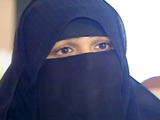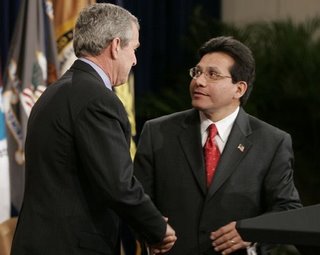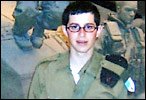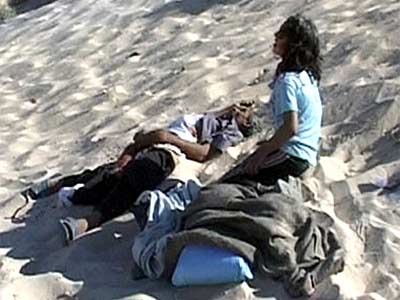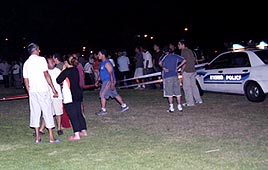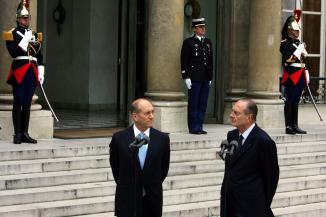
As Canadians living abroad, both Amos and I have been closely following press reports about the Toronto-area suspects (most from the well-off suburb of Mississauga) accused of having formed a terrorist cell and of plotting to bomb numerous targets in Ontario. All of the suspects were Muslims of various origins (Pakistani and Arab) attracted to extremist ideas. The Globe and Mail, Canada’s national newspaper, has had some really good coverage of the different people involved and of their family backgrounds. From two recent articles, it appears that most of them, with the exception of their ringleader (a 40 year old father figure), were very young. They were either in high school or had recently graduated from high school. It should be noted that none of them seemed to be from families that were struggling financially. Now, one of the things that all of these kids appear to have had in common was a really low regard for Canada and Canadian society. What I found remarkable was that they do not appear to have had real grievances about racism or discrimination in Canada against Muslims in general, at least not as far as I remember. What they did seem to have is resentment against and a total lack of identification with what one might describe as plain-old “white” Canada.
Reading some of the things they are said to have posted on their internet forum and blog, one really gets the sense that they were not unlike some of those ethnic high school cliques that latch onto gangster motifs that they see on rap videos. It’s a pretty typical North American high school phenomenon: there’s always a group of badass or wanna-be badass kids of South Asian, Caribbean, Latin American or other backgrounds whose parents are the most upstanding, middle class people, but whose kids are drawn to more hardcore identities and have a real disdain for whatever they identify as “white”. What they’ve designated as “white” Canada is just not cool in their eyes. Of course, most of these kids, being of middle class backgrounds anyway grow out of this teenage angst phase once they graduate from high school and start college or whatever. In the case of the suspects, though, they seem to have expressed their teenage angst through an attraction to fanatical Islamism and a hatred for Canada and the West. Instead of being fascinated by the graphic accounts of violence, the anti-Man messages and the “protest” lyrics of gangsta rap, these kids glorify jihad and martyrdom. In their case, Osama bin Laden and Zarqawi replace Tupac and Biggy Smalls. It’s as if they are basically attracted to the same things as other suburban wanna-be gangsters, the difference being that the Mississauga would-be terrorists are clued in to some other cultural.
In a previous post, Amos already cited parts of an article that dealt with the views of the 18-year old wife of suspect Zakariya Amara, Nada Farooq, whose family, of Pakistani origin, came to Canada in 1997. In an online forum made up of her clique of young Muslims, Nada posted various disparaging remarks about Canada and asserted that she felt absolutely no connection to the country (she raved about the Taliban instead). In an article that appeared today in the Globe and Mail, Zakariya Amara, Nada’s teenage husband, is quoted making even more telling remarks in the same online forum. Taking a swipe at the debased morality of Canadian women in his online post, Amara breaks out in a decidedly whacked out freestyle:
"OUR SISTERS ARE PURER THAN YOUR JENNY AND YOUR HEAHTER [sic] … THE ONLY GOOD THING ABOUT YOU IS YOUR TIM HORTEN"S [sic] MUFFIN FRITTER."Pure poetry. What can you make of this kind of language? To me, it expresses a really juvenile "ethnicism" of some sort. To this kid, Canada is not just un-Islamic and immoral - it’s also boring and lacks culture or a clear identity, except for “Tim Horton’s” (a famous coffee and doughnut franchise in Canada). For this dude, Canada is a country full of plain Jennies and Heathers, who Amara thinks are undeserving of his respect.
What is ironic, of course, is that the parents of these kids hold totally different views from their parents who see Canada in a much more positive light. They are teenage rebels. Their religiosity is new, not inherited or passed on. According to the Globe and Mail article published yesterday (June 29),
The Farooqs, a Pakistani family, came to Canada in 1997 because they didn't like the idea of raising their children in the conservative society of Saudi Arabia, where foreign-born children don't have access to the same education as nationals, said Nada's father, Mohammad Umer Farooq.
The kids are also much more religious than their parents. According to her father,
[Nada] has always been more religious than he and his wife […] and it was a faith that she developed in Canada, not Saudi Arabia. [Nada’s father] described himself as 30 per cent religious and his daughter as 100 per cent.
Even more ironic is the fact that the father is even said to support Canada’s mission against the Taliban in Afghanistan, an issue that aroused the ire of many of the youngsters.

